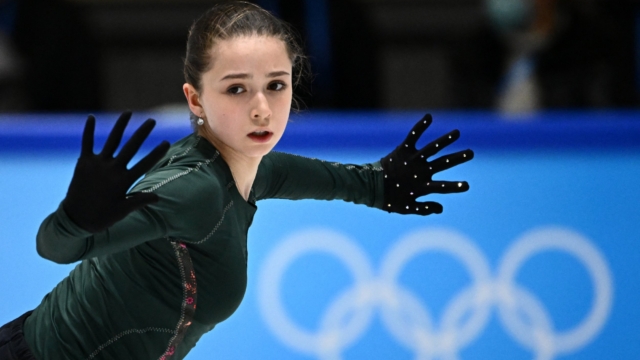Figure skater Kamila Valieva is on her way to a gold medal at the 2022 Winter Olympics, but a doping controversy hangs over her accomplishments.
The 15-year-old Russian athlete tested positive for the heart medication trimetazidine, which is banned by global anti-doping laws.
Last week, Russia’s antidoping officials said she tested positive for trimetazidine when she underwent drug testing in December.
On February 14, 2022, the Court of Arbitration for Sport decided that as a “protected person,” Valieva could still compete. However, if she wins, there will be no ceremony for her or any of the other athletes. The International Olympic Committee (IOC) said it would not be “appropriate” to celebrate.
Valieva also tested positive for two other heart-related medications – Hypoxen and L-Carnitine – which are not banned by anti-doping laws.
Dr. Sean Heffron of NYU Langone’s Center for the Prevention of Cardiovascular Diseases told PEOPLE, “The theoretical benefit of trimetazidine would be in the lead up to competition, in training. It might allow for an athlete to be able to train at a higher intensity for longer periods.”
Trimetazidine is a drug used for the treatment of angina pectoris (chest pain or discomfort). It is a heart medication, which acts to “inhibit fatty acid metabolism, which shifts the body’s metabolism to glucose,” Dr. Heffron explained.
“It could provide that that capacity to train longer and harder, potentially, which would then translate into better performance and competition,” he added.
Hypoxen and L-Carnitine would have fewer benefits and possibly cancel each other out, according to Dr. Heffron, who is a cardiologist.
He told PEOPLE, “Hypoxen, as far as I’m aware, is only used in Russia, and it’s another medication that could alter energy metabolism. Then L-Carnitine is an amino acid that you can probably buy over the counter in the U.S. — it’s a supplement that helps with fatty acid metabolism.”
“It’s kind of paradoxical to use L-Carnitine and trimetazidine to me since the trimetazidine is supposed to inhibit fatty acid metabolism,” he added.
Dr. Heffron went on to say there is no reason why a 15-year-old athlete like Valieva would need to take trimetazidine.
He said, “Certainly not one that’s competing in the Olympics. That would be very unfortunate and unusual, and they certainly would not be competing in the Olympics without a doubt.”
Valieva’s team explained why the drug was in her system, stating that her grandfather takes the heart medication.
Dr. Heffron said, “That seems highly unlikely. I suppose if it was dissolved in the liquid and she had some of the liquid that had this dissolved medication in it, maybe, but my understanding is it’s taken in pill form. But still, it would be incredibly unlikely for levels within his saliva to get in there and to get into her system.”
He said having all three medicines in her system “would seem more than exceptionally coincidental.”
Dr. Heffron said, “Without a doubt, she would be an incredible athlete without any performance aid — and who knows if she’s gotten any performance aid from these if indeed she is taking them. But this is incredibly unfortunate to potentially influence her, and given her age, she’s probably not making all these decisions on her own.”






















